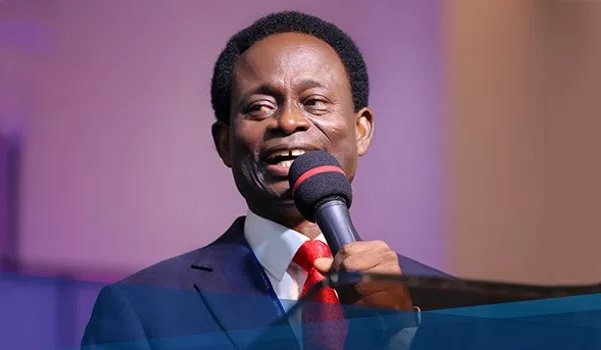|
Getting your Trinity Audio player ready...
|
Apostle Opoku Onyina, former Chairman, Church of Pentecost, Ghana, has called on Prophets nationwide to be mindful of their prophesies, understanding the impacts of their messages and the effects of election tensions to promote peace.
He asked them to be agents of peace, commit to peace and collaborate with law enforcement agencies to enforcement law and order ahead, during and after the upcoming December 7 polls.
“The prophetic Ministry is real and powerful and it needs to be utilized with care and wisdom. Yes, God still speaks but you are his spokespersons and you need to pray for wisdom to be able to deliver in wisdom so as not to let the divine message bring tension,” he said.
Apostle Onyina made the call at a collaborative dialogue organized by the National Peace Council (NPC) with Prophets in the Greater Accra Region on Tuesday ahead of the 2024 generation elections on the topic: “Prophets and Peaceful Elections.”
He said Prophets had varied Biblical roles such as reminding God’s people of his covenants, speaking on contemporary issues, foretelling the future, offering spiritual guidance to leaders, interpreting signs, carrying God’s authority and praying for the nation.
However, Apostle Onyina said there were sometimes challenges with their prophetic roles such as preconceived answers, pressure from people and potential to incite trouble.
“You need to be careful not to have preconceived answers, to well hear the voice of God,” he said.
Mr. Stephen Asamoah Boateng, the Minister of Chieftaincy and Religious Affairs, said election was important as all citizens did not share same ideas nor belong to same political parties.
He said the nation had tried military dictatorship regimes, Union governments and had reached a consensus to try a multiparty democracy and it was only by elections that it could thrive.
He appealed to Prophets to leverage their role to positively impact the nation by advocating justice, equity and the wellbeing of marginalized communities.
Mr.. Boateng asked that they encouraged their followers to accept the social, political and economic results of their choices.
“Four year electoral results should not bring the country to a halt. We should not die because of a four year cycle,” he said and charged the prophets to constantly engage political actors behind the scenes and sometimes openly to make impacts.
“If they are not making impacts, Prophets also live in the same community and are impacted by what is happening. So come out and shame us to do the right things. Trust me, politicians don’t like to be shamed publicly even though sometimes we pretend to be good.
“We should learn. If you lose the elections, pick a phone and congratulate your opponent. It shows you are a gentleman,” he added.
Reverend Dr Ernest Adu-Gyamfi, Chairman of the NPC, said the threat of terrorist and violent extremist attacks within the sub-region had heightened a discourse within the security circles in the country.
Given the porous nature of borders across the sub-region, he said there were growing fears of the spread of extremist groups across West Africa including Ghana.
“We also have other notable domestic threats which can provide fertile grounds for violent extremist actions. These include chieftaincy and ethnic clashes, farmer-herder conflicts, violent demonstrations, armed robberies, proliferation of arms, drug trafficking, political polarization, vigilante groups, hate speech and expressions which sometimes unfortunately spread through media platforms,” he said.
Dr Adu-Gyamfi said peace was a priceless commodity but could be expensive if not nurtured with love, unity, and tolerance among the prophet’s followers and church members.
“We must concede that our members and followers are supporters of various political parties and therefore public declarations of the outcome of general elections can create political tension among your own members and the public at large,” he advised.
Archbishop Nicholas Duncan Williams, Founder of the Action Chapel International advised the prophets to let the good of country guide their interpretations of prophesies.
“No prophet can see everything, we see in parts and so prophesy in parts. Remember God can say something, but the people can reject the will of God and that doesn’t make you a false prophet.
“Our politicians need to bear in mind that if they don’t respect the votes and the rights of the people in the 2024 election, there are serious implications on the destiny of men, women and children within the country,” he said.
Source: GNA


